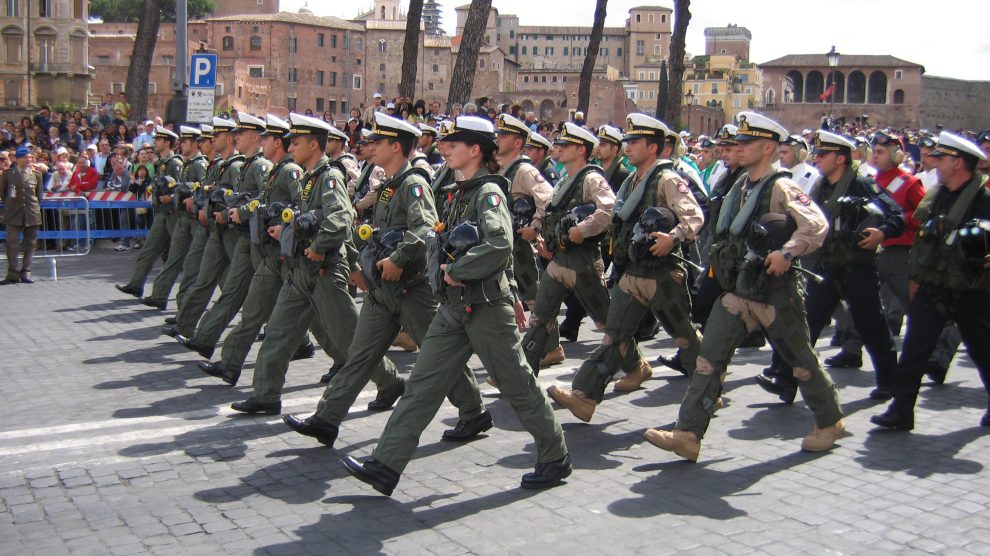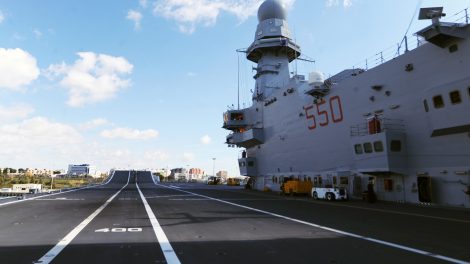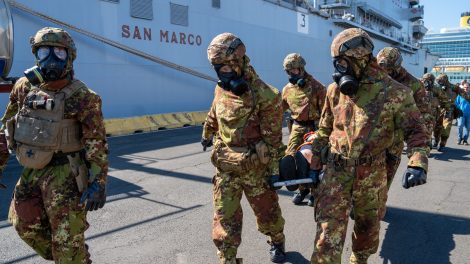It became even more evident after the Afghan withdrawal. In our increasingly complex world, permanent allies must remain close and improve communication by consulting each other more frequently. It’s in their own interest, as well as that of the international community.
Such strategic closeness is well exemplified in the Italy-US relation. In this respect, Italy’s Defence Minister Lorenzo Guerini‘s trip to the US is anything but a run-of-the-mill visit. The diplomat, who will meet his counterpart at the Pentagon and other government officials, carries a dossier that is full of issues as well as proof of the substantial contributions that Italy is making to NATO and the US.
For several years the Italian armed forces have directed KFOR, the NATO operation that is crucial to the stability of Kosovo and contributes to peacekeeping efforts in the Balkans. It will be resumed next year after a short interlude.
Moreover, Rome will also direct the new NATO mission in Iraq, which de facto replaces that of the US. It’s an extremely delicate affair, both operationally and politically, but it will be carried out on solid footing. After all, the Italians ran the Aristymaia military school, which trained Iraqi armed forces, for several years.
Furthermore, Italy has been in Afghanistan since the very beginning, starting in the framework of the United Nations and then operating within that of the Atlantic Alliance. It also headed the Kabul Command and managed the province of Herat, on the border with Iran, for years, at the expense of conspicuous resources and human losses. And over 5,000 Afghans – the biggest number in the EU – were airlifted into the peninsula.
On the domestic side, the Italians have demonstrated vast availability in terms of the use of their land on behalf of the Americans. The Sigonella base in Sicily, for instance, was used for the Afghan operations, and the Southern Command of NATO’s JFC (formerly AFSOUTH) has always been lodged in Naples.
In short, our country, a NATO founding member in 1949, has always been among the biggest contributors to all operations – the real raison d’être of the Atlantic Alliance – and may well be counted among the US’ safest and most reliable allies in Europe. Italy participates in all NATO activities around the world, whether it is air surveillance of the Baltic countries or presence in Poland.
Politically speaking, Rome would like the Alliance to be more involved in strengthening Arab countries and North Africa. Those areas are cradles for numerous threats, which could multiply over time.
Thus, the Italian government intends to use the broad framework of the G20 to promote peacekeeping and economic growth efforts. This is also a way to put pressure on the new government in Kabul, to promote its respect of human rights and some form of political pluralism.
However, the decisions to be made do not end there. Geopolitical powers and movements across countries are in full swing – from China, Russia and Iran to the equilibriums of the Arab world, failed states like Lebanon, the endemic crisis in the Sahel.
For these reasons, bilateral relations between Rome and Washington remain essential. It would be best to establish a method of periodic consultations, which would also aid in coordinating our positions in multilateral areas.
The Atlantic Alliance remains, after 72 years, the joint effort’s center of gravity. A reform is in the works and the public opinion deems it more relevant than ever, especially after the tragic events in Afghanistan.
It has already been said that NATO must rethink its technological and operational strengths to remain the best political-military organization in the world. The process of political consultation must be strengthened so as to harmonize the priorities of thirty member countries. Decisions must be clear-cut and devoid of empty formulas with little actual impact.
Beyond this, as founding countries, we can take a longer-term look. The “open door policy,” which allowed numerous nations to adhere to the Alliance, is positive. However, let us keep in mind that NATO is not the United Nations; we must continue to take into account the role of the biggest contributing countries, to give it a sense of direction.
The organization’s efficiency, rather than the horizontal distribution of positions or the micromanagement of secondary issues, is the priority. The North Atlantic Council must return at the center of all decisions and retain complete control over the organization’s functioning.
We must be leaders of the organization together, with the help of the other historical countries. The last two Secretary Generals came from advanced countries, albeit ones with 4 to 5 million inhabitants. We believe the time has come to go back to large countries, with a high-level and longstanding culture of safety.
The relationship with China opens up new strategic and political horizons for Indo-Pacific countries with which NATO has little experience. This will require skill and firmness, together with uncommon diplomatic skills. But at present, there is no organization as well suited for these tasks than the Atlantic Alliance.




